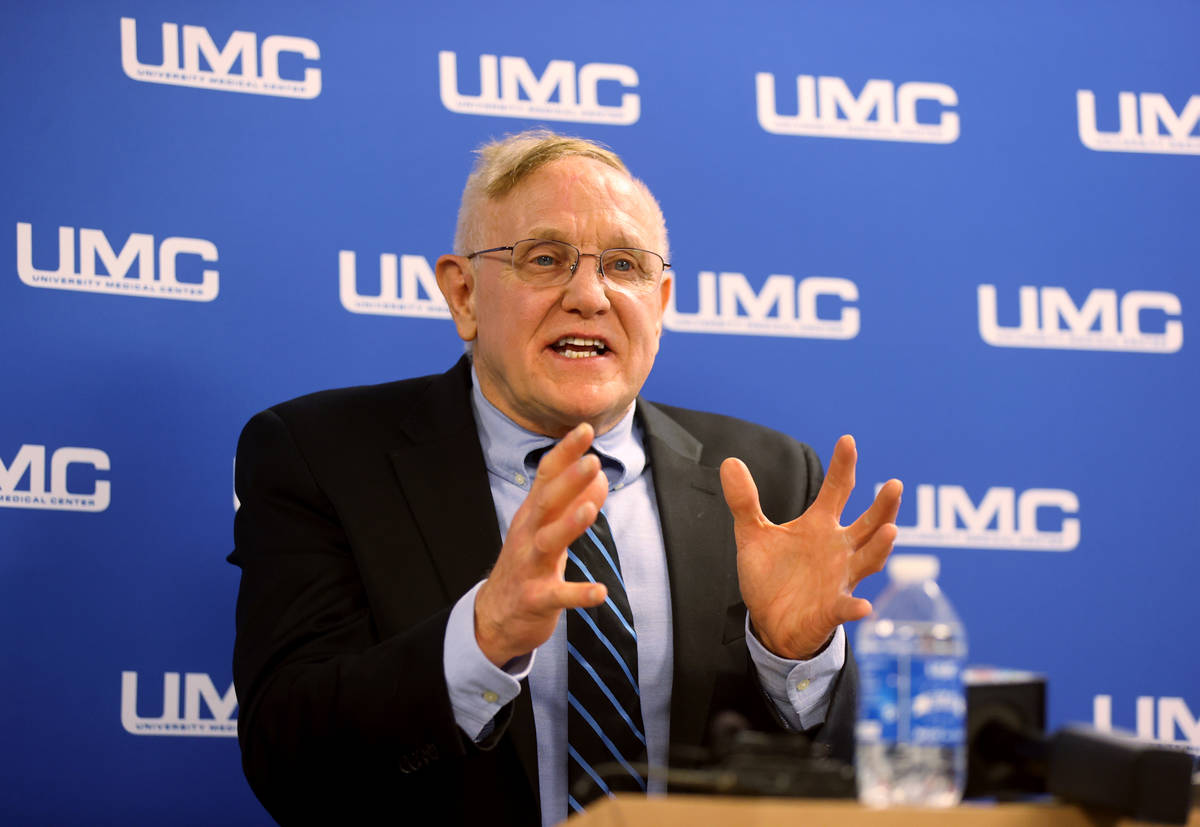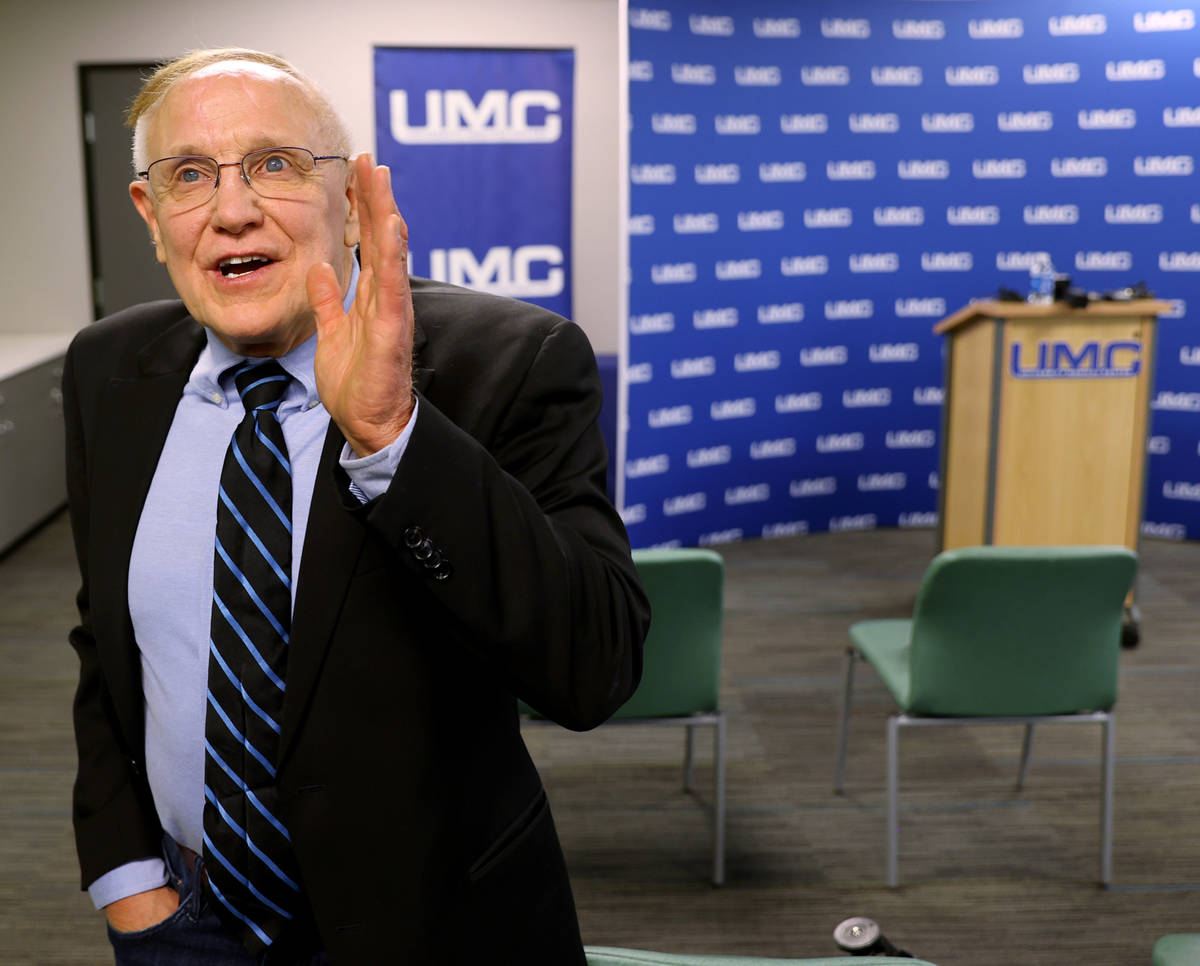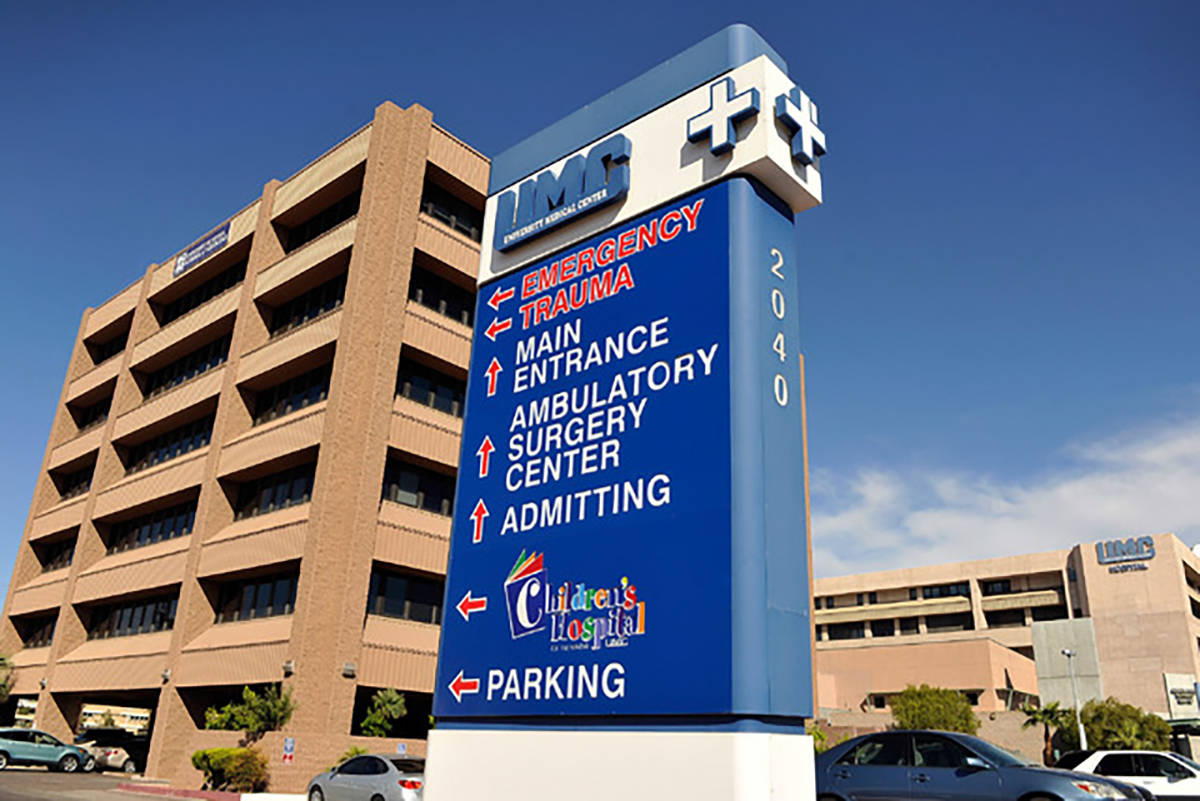UMC to expand HIV testing throughout Las Vegas Valley
When Dr. Jerry Cade started treating AIDS patients in Las Vegas more than 35 years ago, diagnosis was viewed as a death sentence.
Today there are drugs that can reduce HIV in infected individuals to undetectable levels, so the virus can no longer spread. There also are medications to prevent infection in people at higher risk.
“We have the tools today to eliminate HIV if we have the political will,” Cade, the longtime medical director of the UMC Wellness Center, said on Friday, the 40th anniversary of when the Centers for Disease Control and Prevention reported the first five cases of what became known as AIDS.
But people won’t seek treatment if they don’t know they have the virus. A good number of people with HIV don’t know it, and as a result, may unknowingly infect others, accounting for the majority of new cases, Cade said.
To address the problem, UMC in the coming weeks will begin to offer testing for HIV and other sexually transmitted infections at all nine of its Quick Care clinics in the Las Vegas Valley. Testing will be offered for other sexually transmitted infections as well.
Cade said that everyone should be tested for HIV at least once in their lifetime.
The five-year testing program will be funded through $6 million in grants from the CDC. The program is in partnership with the Southern Nevada Health District and the Pacific AIDS Education and Training Center.
What it will cost a patient to get tested wasn’t immediately clear.
“Our team is working on options to help uninsured patients, but testing will not be free initially for uninsured patients,” UMC spokesman Scott Kerbs wrote in an email. Grant money will be used for staffing, equipment and supplies.
Nevada has the highest rate of new HIV infections in the Western United States, according to a plan for ending the epidemic compiled by the health district and the Nevada Department of Health and Human Services.
The plan cites a 2018 CDC estimate that just 79 percent of those living with HIV in Clark County had been diagnosed, indicating that one in five are unaware that they are infected.
In Clark County, 448 new cases of HIV were diagnosed in 2019, according to data posted on a state health department website. From 2015-19, there have been between 20 and 22 new cases per 100,000 people each year.
A decade ago, in 2011, there were 340 new cases, a rate of 17 per 100,000 population.
Nevada, in which 5,400 residents have died of AIDS, 4,300 of them in Clark County, has pledged its support to an initiative to end the epidemic by 2030.
It has been a long battle. UMC created its formal HIV program in August 1985, according to information from the county’s public hospital. The UMC Wellness Center opened in November 1986 to provide the first approved HIV drug to hospital patients. The center, which opened with five patients, now provides care for about 2,200.
In 2018, UMC became the first hospital in Nevada to introduce universal HIV testing for adult emergency room patients. Patients may opt out of the testing.
The announcement of the new testing program at Quick Care locations was made at a news conference where Cade, District Health Officer Dr. Fermin Leguen, Congresswoman Dina Titus and Clark County Commissioner William McCurdy II spoke of progress in fighting the disease.
Titus praised Cade for devoting his career to the effort.
“Dr. Cade has been here from the very beginning,” she said. “He is the hero in this story.”
Contact Mary Hynes at mhynes@reviewjournal.com or 702-383-0336. Follow @MaryHynes1 on Twitter.

























